Upon learning that my friend’s trepidations about watching films over two hours was that his attention span usually couldn’t handle it, I found myself in similar territory. Blame the advent of cell phones and YouTube but I’m pretty heavily aware that over the past 15 years, I’m significantly dumber than before.
Because it’s not good to have a brain that turns into mush if it has to pay attention to something longer than a half hour, I try to actively train my brain. I try to read books and if I can ever finish one, it feels like compling a marathon. I also think that there are a number of serialized hour-long shows that can be a slog, even if they tell a good story. Sure, we can all jump at the Americans, Homelands, or Breaking Bads, but we’re looking at it the wrong way. The joy of watching TV isn’t to latch onto the most adrenaline-producing high and ride it out; it’s to find a challenging show like Florida Project or The Resort and stick it out through the exposition, to an even greater reward.
I traditionally do a list of top 12 shows with 10 runners-up, and there’s always enough shows (dramas, comedies) to fill up that list. However, looking over my list last year, there’s a ton of shows I gave up on like Mrs. Davis, Big Door Prize, Cleopatra, Transatlantic, and I hobbled to the finish line with The Diplomat.
On the other hand, some of the dramas I did finish like “Locke and Key”, “One Piece,” or “Fubar.” These are pretty flawed works.
I cannot logistically afford to watch all the good art there is produced on a yearly basis. There’s not enough time. As a serious (or whatever word you want to use) consumer of TV, I owe it to myself to watch a substantial amount of challenging output.
For years, I have understood that serialized television can have a slow burn at the beginning as you sift. The big question I ask myself is whether I am challenging myself by what I watch. It’s far easier to watch “Office” or “Futurama” reruns than it is to dive into a new show. In that spirit, I’ve tried to revisit a few shows and see if I can make it through the full season (what I consider to the measure of completism):
In this tradition, I’m giving a second look to a few seasons of shows that didn’t hit me off the bat:
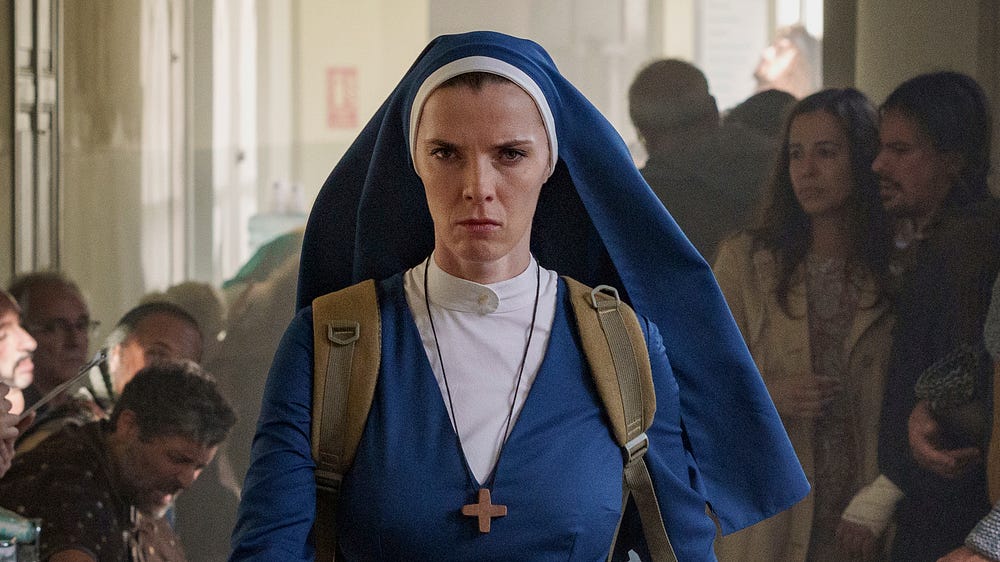
Mrs. Davis (S1, Peacock)-This is a bizarre show about a nun battling against some form of A.I. that has taken over the entire planet. It leans really hard on style and jagged storytelling. For instance, the nun character’s relationship with Jesus, is presented as a story of a couple with a chaste partner who doesn’t want to copulate until marriage. It’s not immediately apparent but reading a recap will tell you that he’s supposed to a version of Jesus that only she can see- a move that deliberately opens more doors than it closes. It’s often a cardinal sin of a reviewer to admit they don’t get something, but let’s face it: These metaphors and other literary tricks push the story too far into confusion, and I had to stop again after four episodes lest I dig myself deeper into plot holes I’m not invested in.
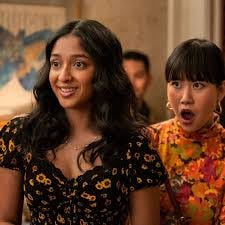
Never Have I Ever (S3, Netflix)-This show made my top 12 list in previous years, but with the long breaks between seasons, I tend to treat each season like a brand new show. In the third season, I initially shied away because it seemed like a lot of the drama was becoming circular: Paxton, Ben, Dev, and the other characters were rotating romantic partners like musical chairs. I also have to admit, I felt like it was shoehorning in another lesbian plot with Eleanor and Aneesa. Upon second viewing, I’m appreciating genuine care to detail in Paxton’s character: He’s legitimately stepping out of the castes of popularity that define him and finding his own way, which is accurate to the high school experience.
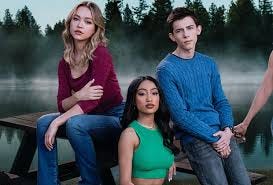
Cruel Summer (S2, Netflix)-The first season of this time-jumping team show made my honorable mention, for it’s interesting take on today’s cyberbullying climate on how lightning quick status can change between two high school doppelgangers. The second one dragged a bit and lowered the stakes from an abduction and abuse of a teenager over several months, to the leak of a sex tape. The characters are decent (in particular, that of an exchange student who integrates well within a family) and the Pacific Northwest has a decent sex of place, but it’s mostly basic teenage drama. Unlike its predecessor, the timescapes hardly mesh with each other to form a rich tapestry: The characters just get more jaded and goth. About six episodes in, I’m considering giving up.
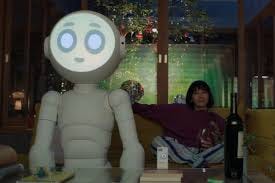
Sunny (S1, Apple)-Set in a near alternate future in Japan, the great Rashida Jones plays an American (Suzy). She’s a bitter and pragmatic ex-pat who plans to go to Japan to live a life of solitude (a cultural practice known as “hikikomori”), until she accidentally falls in love with a programming genius named Masa (Hidetoshi Nishijima). The series revolves around Suzy tracking her husband’s disappearance and uncovering the secrets of his past. There’s a mysterious pollyanish AI robot (the titular Sunny) that also figures into the plot.
Rashida does a great job playing against type as a kill joy, but dour characters don’t always make for engaging television, and she tows the line. This is particularly the case where the expectation of a show set in in Japan — a land of endless fascination and hyperstimulation to our Western eyes –sets up our hopes in a certain direction that doesn’t involve the protagonist moping in a pool of ennui.
There aren’t a lot of positive characters to balance out Sunny and cancel out the net dreariness. The optimistic robot Sunny is meant to be a foil but AI characters don’t float my boat. Half the reason I wouldn’t call Star Trek: The Next Generation great TV is because I never bought Data’s struggle “to be human.” After a lull in episode three, the show started picking up for me once again.
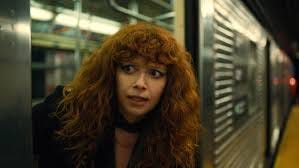
Russian Doll (S2, Netflix)-I didn’t initially begin this season because I figured “why would a show about breaking out of a closed time loop need a second season?” Would Groundhog Day have been improved with a sequel? This season’s existence is a stretch: There’s little reason for Allen to still be in the picture, but the show at least acknowledges it (re: Nadia’s best friend (Greta Lee) getting jealous) and the show mostly exists because TV deserves more Natasha Lyonne in odd situations. The second series is an absurdist, quasi-comic time travel saga in which Lyonne is trying to correct mistakes in her family’s past (she inhabits the bodies of her mother and grandmother) to recover the family treasures: Gold bullion that her Eastern European family invested in when the tragedy of the Holocaust created a distrust in banks. There is some major early-on-set confusion in the pilot if you’re consuming this in a vacuum. Once you catch up on the internet, episode five hits a major speed bump when our heroine jumps from her mother to her grandmother’s body.
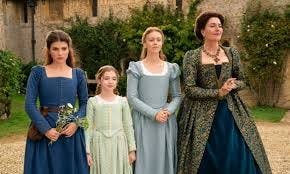
My Lady Jane (S1, Amazon)-A whimsical period piece set in Tudor-era England centering around a spunky heroine who wants more from life than being in the idle rich. She’s the live personification of every Disney Princess, only she’s semi-historically based on a woman who briefly became Queen for nine days. The interesting angle should be Jane’s personality and her interest as an amateur scientist in an era in which science was batshit insane conjecture. Instead, the series takes a turn towards a trite will-they-or-won’t-they art and fantasy (her paramour is an on-again-off-again centaur seeking a cure). Four episodes in, this isn’t on the top of my priority list, but it might be worth another chance if The Decameron (another satiric period piece that recently came out on streaming) doesn’t work out.
No comments:
Post a Comment